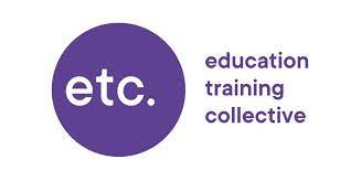Students sitting GCSEs and A-levels next summer will sit adapted exams and receive grades that are a “midway” point between last year and pre-pandemic 2019 results.
The government said a “transition” year before grades return to pre-pandemic levels in 2023 will “provide a safety net” for this year’s cohort “as well as a step back to normality”.
Ofqual has also confirmed today that adaptations such as optionality and advanced notice of exam content will be made to next summer’s exam series.
The government is also set to publish contingency plans today should exams be cancelled again. A consultation will propose teacher-assessed grades are used, and that colleges will need to start collecting students’ work as evidence from after October half-term.
Education secretary Nadhim Zahawi said they have put “fairness at the heart” of their approach, listening to students, teachers and parents.
New Ofqual chief regulator Dr Jo Saxton said the approach will “recognise the disruption experienced by students taking exams” this year.
“It will provide a safety net for those who might otherwise just miss out on a higher grade, while taking a step back to normal,” she added.
The plans have also been welcomed by sector associations. Bill Watkin, chief executive of the Sixth Form Colleges Association, said, “The DfE and Ofqual seem to have got this right, with the plan to reduce the content in some subjects and give advance notice of topics in other subjects, and with the decision to delay the return of grade boundaries to 2019 levels.”
Here’s what you need to know….
Grading ‘transition year’ as results return to normal in 2023
This year will act as a “transition year” to “reflect the recovery period”, Ofqual said. Grade boundaries will be set by exam boards at a “midway” point between 2021 and 2019, the last time exams were sat before the pandemic.
Grades are expected to return to normal by 2023. The approach will “provide a safety net for this year’s students as well as a step back to normality”, the government said.
Grade boundaries will be set by senior examiners after they have reviewed students’ work.
While results will be higher than pre-pandemic exams, the exact position may vary by subject and grade because of a shift in entry profiles (for instance, more higher attainers taking a particular subject).
Top grades soared in the last two years where exams did not go ahead. The proportion of A-A*s at A-level rose from 25.2 per cent in 2019 to 44.3 per cent this summer.
Meanwhile, at GCSE the proportion of grade 7s and above issued to 16-year-olds in England rose to 30 per cent this year, up from 27.5 per cent in 2020 and 21.8 per cent in 2019.
Autumn series results, including for GCSE English and maths resits, will be aligned to summer 2021 grading.
This year’s A-level students will have not sat formal GCSE exams as they were cancelled and replaced with centre assessed grades in 2020.
Optionality and advance notice confirmed
There will be a choice of topics in some GCSE exams this year, such as English literature and history.
Where there is not a choice of topics, advance information will be provided to help students target their revision. There will also be support materials like formulae sheets in maths.
Advanced information will be released by February 7, before half term, but the timing will be kept “under review subject to the course of the pandemic” and can be brought forward.
Paul Whiteman, general secretary of school leaders’ union NAHT, said they remained concerned at the February date as it would “limit the desired impact”.
“Providing this information sooner would help to reduce the differential impact of the pandemic on students so far,” he added.
The consultation on the plans, launched in July, had more than 6,000 responses. The government’s response is due to be published today, but is it expected to be largely the same as the proposals.
Colleges should start collecting plan B evidence this term
The government was lambasted for not having an “off-the-shelf” plan B ready for when exams were cancelled in January. But a two-week consultation is due to launch today outlining the DfE and Ofqual’s proposals.
These are that if exams cannot go ahead next year – either because of further disruption or because of public health advice – teacher assessed grades will be used again.
DfE and Ofqual say assessments that take place over the course of the year already – such as coursework and mocks – will make up the evidence base wherever possible.
Colleges will be asked to start collecting this evidence from the second half of this term.
Students will be told beforehand by their teacher if any work could contribute towards a TAG. Also the time that students spend in assessments this year will be limited so they take no longer than the total exam time for that subject.
The department hopes that this will be less burdensome than last year and final guidance would be published after half term. There will be no cut off point on when the plan B can be implemented.
No decision has been made on the grading standards if TAGs are used.
Whiteman said it is “vital” the evidence collection works “alongside the teaching, learning and assessment which teachers have planned for this year”.
“It should not create significant additional workload for teachers nor add pressure to students who are working hard to complete their courses,” he added.
‘Benefit of the doubt’ on UCAS grades
Ofqual recommends that teachers use the familiar 2019 standards as the basis for predicting students’ grades for UCAS. But borderline students should get the “benefit of any doubt”.
This means if a student is likely to be on the borderline between two grades, they should predict the higher one.
Ofqual said that in recent pre-pandemic years, overall grades have been “generously predicted” by teachers.
Vocational and technical qualifications
The Education Policy Institute has said: “A chief concern of ours that is yet to be addressed by the government is the large gap between students taking academic and vocational qualifications.”
David Robinson, director of post-16 and skills at the institute warns: “Academic students saw far greater increases in their grades in 2020 and 2021 and may continue to do so under these plans. The government must take action and provide assurances to vocational students that they will not lose out under this system.”
Assessment arrangements for vocational and technical qualification have already been announced, but VTQ awarding organisations will be told to “take account” of the assessment approach taken for GCSEs and A-levels when setting their own standards so students are not disadvantaged.
The first cohort of T Level students are due to complete their qualifications in 2022. Guidance for those learners will say that should planned exams and assessments not be able to go ahead, TAGs will be used. However, practical competence assessments may need to be delayed under contingency arrangements.
Back to normal on results days
This year, results days were held earlier and in the same week, two days apart. But these too are going back to normal. So, A-level results day is on August 18 and GCSE results day on August 25.















Sounds fair to me.